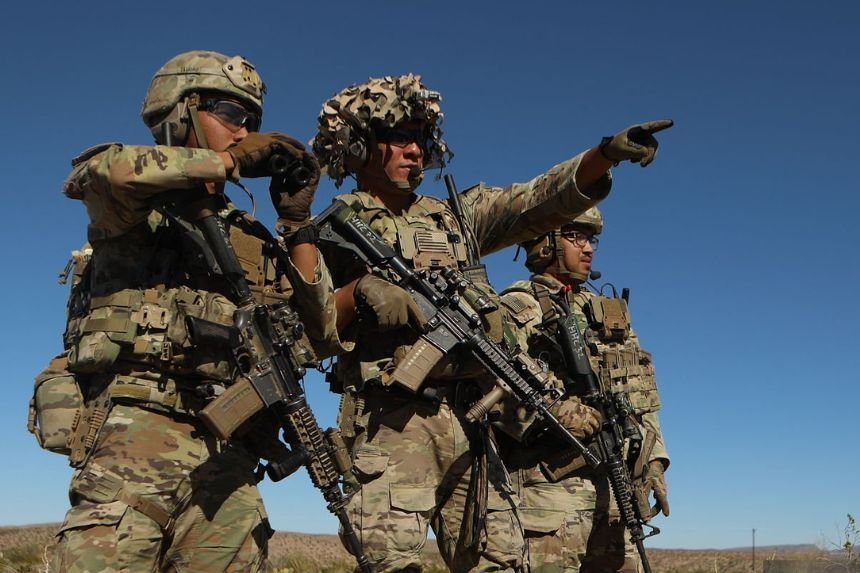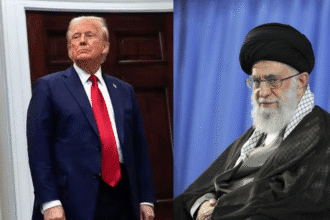The U.S. refusal to intervene in Mexico highlights the interest of Mexico to defend its sovereignty when it comes to foreign attacks on drug cartels. The Mexican president has also strongly opposed U.S. troop deployment suggestions in the war against narco-terrorism in the country. Read another news on globzette.com.
This position is a reminder that Mexico does not want to relinquish absolute control over law enforcement and military activities within its borders, but still collaborates with the United States in unilateral cooperation against drug trafficking and cartels.
The ruling is also an indicator of the need to follow international law concerning military intervention.
Mexico Rejection of U.S. Military Intervention: Causes and Consequences
Legal Consideration and Sovereignty
The refusal of Mexico is concerned with national sovereignty and international law. The presence of foreign troops on Mexican soil might be a threat to constitutional powers and law enforcement within the country.
Direct Intervention vs. Bilateral Cooperation
Mexico focuses on combined efforts, exchange of intelligence, and implementation of drug interdiction policies instead of U.S. strikes.
Trump Sets Two-Week Deadline for Putin Amid Ukraine War Escalation
Bilateral cooperation also makes it possible to effectively respond to campaigns against narco-terrorism and control its actions and operations legally and operationally.
Response to U.S. Proposal
The US military intervention proposal was severely bounced back. The authorities emphasized that unilateral strikes would increase tension and erode the trust between the two countries, as well as complicate border security operations.
Strategic and Security Effects
Fighting Cartels in the Absence of the U.S Troops
Mexico is still conducting focused campaigns against drug cartels with national law enforcement and military resources without losing the sovereignty of operations, but threats related to narco-terrorism.
U.S.-Mexico Border Security
Border security is also an issue. The use of the coordination that does not involve direct foreign military intervention will keep both countries playing a part in derailing cartel activities without violating the jurisdictional borders.
International Law and Intervention Constraints
In declining the foreign intervention, Mexico sets a precedent as to international law and the extent to which foreign military intervention can be applied in domestic criminal law enforcement.
Conclusion
Mexico rejection of U.S. military intervention highlights the importance of a cautious approach to national sovereignty and the use of cooperative approaches to anti-cartel efforts.
Mexico can refuse the deployment of foreign troops, keeping complete control over law enforcement and army activities on its territory and strengthening bilateral cooperation with the United States.
This strategy would deal with narco-terrorism campaigns and also increase border security without undermining the legal authority and increasing tensions in the region.
The ruling is an indicator of an excellent commitment to international law, national rights, and the domestic fight against organized crime spearheaded by Mexico.
Intelligence sharing, synchronized actions, and multi-agency operations give a good platform for disrupting drug cartels without falling out of diplomatic and operational balance. This rejection underlines the strategic choice of Mexico on unilateral foreign military action and partnership.
FAQs
1. Why did Mexico not agree to the U.S. military intervention against cartels?
The prime reasons presented by Mexico concerning the refusal to deploy the foreign troops were connected with sovereignty issues and the observance of international law.
2. What will Mexico do against drug cartels in the absence of the U.S troops?
The nation depends on national enforcement, military action, and intelligence exchange with the U.S. to attack the narco-terrorism campaigns.
3. Is Mexico still cooperative with the U.S. in drug enforcement?
Yes, there is bilateral collaboration in the form of intelligence, joint operations, and coordinated border security programs.
4. Will the U.S. military intervention be the source of tension?
Yes, foreign strikes would impact negatively on trust, increase the level of diplomatic strain, and undermine the operational authority of Mexico.
5. What does this ruling imply for international law?
It strengthens the idea that the permission of the foreign military intrusion on the sovereign territory is obligatory and must be followed by international legal standards.








